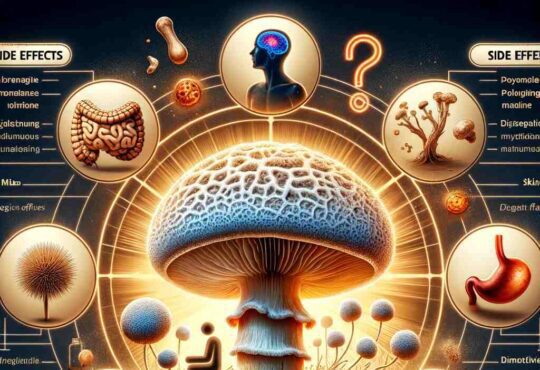This article aims to shed light on the lesser-known signs of high Blood Sugar in Non-Diabetics individuals and highlight the potential health implications.
Introduction
Recognizing the symptoms of high blood sugar in non-diabetics is crucial for early detection and appropriate management. High blood sugar, often associated with diabetes, can also affect individuals who are not diagnosed with the condition.
This article aims to shed light on the lesser-known signs of high Blood Sugar in Non-Diabetics individuals and highlight the potential health implications.


Defining high blood sugar and its association with diabetes
High blood sugar, medically referred to as hyperglycemia, is a condition characterized by an excessive amount of glucose circulating in the bloodstream. Normally, the hormone insulin helps regulate blood sugar levels by facilitating the absorption of glucose into cells.
However, in individuals with diabetes, the body either does not produce enough insulin or cannot effectively use the insulin it does produce, resulting in elevated blood sugar levels.
Highlighting the importance of recognizing high blood sugar in non-diabetics individuals
While high blood sugar is commonly associated with diabetes, it is crucial to understand that high Blood Sugar in Non-Diabetics individuals can also experience elevated blood sugar levels. Ignoring the symptoms can lead to potential health complications, which can be avoided through early recognition and appropriate intervention.
Explaining the risks and potential health implications
Uncontrolled high blood sugar levels can have serious health implications, regardless of whether an individual has been diagnosed with diabetes or not. Prolonged exposure to elevated blood sugar can damage various organs and systems in the body, including the heart, blood vessels, kidneys, and eyes. It is therefore essential to be aware of the symptoms and take necessary steps to maintain optimal blood sugar levels.
The link between High Blood Sugar in Non-Diabetics
Shedding light on the misconception that only diabetics can experience high blood sugar
Contrary to popular belief, high blood sugar is not exclusive to individuals with diabetes. It is vital to debunk the misconception that non-diabetic individuals are immune to elevated blood sugar levels. Anyone, regardless of their diabetic status, can experience hyperglycemia due to various factors.
Discussing the physiological factors contributing to high blood sugar in non-diabetics individuals
Several physiological factors can contribute to high blood sugar in non-diabetics individuals. These factors include hormonal imbalances, insulin resistance, certain medications, pancreatic disorders, and chronic stress. Understanding these underlying causes is crucial for identifying and addressing high blood sugar symptoms in non-diabetic individuals.
Subtle signs of high blood sugar
High blood sugar in non-diabetic individuals can manifest through various subtle symptoms. It is important to be aware of these signs and seek appropriate medical attention if they persist.


Unexplained fatigue and lethargy
Persistent tiredness and lethargy can be surprising symptoms of high blood sugar in non-diabetic individuals. Elevated blood sugar levels can lead to feelings of exhaustion, making it challenging to engage in daily activities and maintain productivity.
Unquenchable thirst and frequent urination
Excessive thirst, even after drinking ample fluids, along with frequent trips to the bathroom, can be indicative of high blood sugar levels. The body’s response to elevated blood sugar includes increased urine production, leading to dehydration and an unquenchable thirst sensation.
Cravings and increased appetite
Sudden food cravings and an insatiable appetite can be linked to high blood sugar in non-diabetic individuals. Elevated blood sugar levels can interfere with the body’s ability to regulate appetite, resulting in increased food intake and potential challenges with weight management.
Blurry vision and eye problems
High blood sugar can affect vision temporarily in non-diabetic individuals, causing blurry vision and other eye problems. Prompt action is crucial in addressing these symptoms to prevent long-term damage to the eyes.
Surprising correlations: High blood sugar and mental health
Elevated blood sugar levels in non-diabetic individuals can have surprising correlations with mental health.
Irritability and mood swings
High blood sugar levels can potentially lead to irritability and mood swings in non-diabetic individuals. The biochemical mechanisms linking mood disorders and insulin resistance are still being explored, but recognizing and managing elevated blood sugar can help mitigate these emotional and mental health repercussions.
Cognitive decline and brain fog
Impaired cognitive function, including difficulties with focus, memory, and concentration, can be associated with high blood sugar levels in non-diabetic individuals. It is essential to address these symptoms promptly to maintain optimal brain health in the long run.
Increased risk of anxiety and depression
Research suggests a link between high blood sugar levels and an increased risk of anxiety and depression in non-diabetic individuals. The exact biochemical mechanisms underlying this relationship are complex, but effectively managing blood sugar levels can potentially reduce the risk of mental health disorders.
High blood sugar and its impact on cardiovascular health
Uncontrolled high blood sugar levels can significantly impact cardiovascular health, even in non-diabetic individuals.
Unexplained heart palpitations and irregular heartbeat
Surprisingly, high blood sugar levels can be associated with symptoms of cardiovascular distress, such as heart palpitations and irregular heartbeat, even in non-diabetic individuals. It is crucial to raise awareness about the potential risks of uncontrolled blood sugar levels on heart health.
High blood pressure and arterial damage
Elevated blood sugar levels can contribute to hypertension in non-diabetic individuals, which in turn can cause arterial damage. Long-term cardiovascular health can be compromised if blood sugar levels are not properly managed.


Increased risk of stroke and heart disease
Alarming associations have been found between high blood sugar and an increased risk of both stroke and heart disease in non-diabetic individuals. Implementing preventative measures and adopting a healthy lifestyle can reduce these risks and promote overall cardiovascular well-being.
Summary
Recognizing the symptoms of high blood sugar in non-diabetic individuals is crucial for early detection and appropriate management. Key symptoms include unexplained fatigue, unquenchable thirst, cravings, blurry vision, irritability, cognitive decline, and cardiovascular symptoms. Increased awareness and regular monitoring of blood sugar levels are essential for maintaining optimal health.
It is essential to be aware of the surprising symptoms of high blood sugar in non-diabetics, as they can often go undetected. By staying vigilant and recognizing the signs, you can take proactive measures to manage your blood sugar levels through lifestyle changes. Remember to consult with a healthcare professional for a thorough evaluation and personalized guidance. Taking control of your health is a vital step towards a happier, healthier future.
FAQs (Frequently Asked Questions)
Can high blood sugar occur suddenly in non-diabetic individuals?
Yes, high blood sugar can indeed occur suddenly in non-diabetic individuals. Although diabetes is commonly associated with high blood sugar levels, it is not exclusive to those with the condition.
Certain factors such as stress, an unhealthy diet, lack of physical activity, and certain medications can lead to temporary spikes in blood sugar levels even in individuals without diabetes. It is important to be aware of these sudden changes as they can have potential implications for your overall health.
How can I determine if I have high blood sugar without a medical test?
While a medical test is undoubtedly the most accurate method to determine high blood sugar levels, there are several signs and symptoms that can act as indicators. Paying attention to your body and being mindful of any unusual changes can provide valuable insights.
Some common symptoms of high blood sugar in non-diabetics include increased thirst, frequent urination, unexplained fatigue, sudden weight loss, recurrent infections, blurred vision, and slow wound healing.
It is important to note that experiencing one or more of these symptoms does not necessarily mean you have high blood sugar, but it can serve as a warning sign to get further evaluation from a healthcare professional.
Are these symptoms reversible with lifestyle changes?
Fortunately, many of these symptoms of high blood sugar in non-diabetics can be reversible with lifestyle changes. Adopting a healthier lifestyle can often help regulate blood sugar levels and prevent further complications.
Making dietary adjustments, such as reducing the consumption of sugary and processed foods, increasing intake of fiber-rich foods, and maintaining portion control, can significantly impact blood sugar levels. Regular physical activity, even something as simple as walking, can also contribute to improved blood sugar management.
Additionally, managing stress levels and ensuring adequate sleep can have a positive impact on blood sugar control. However, it is important to consult with a healthcare professional to determine the most suitable approach for your individual circumstances.
What is the recommended course of action if I suspect elevated blood sugar levels?
If you suspect elevated blood sugar levels, it is important to take prompt action. The first step is to monitor your blood sugar levels using a blood glucose meter, widely available in pharmacies and online. Regular monitoring will help you identify any patterns or fluctuations in your blood sugar readings.
Additionally, it is advisable to keep a record of your dietary choices, physical activity levels, and any symptoms you are experiencing. This information can provide valuable insights for you and your healthcare professional.
Modify your diet to include more whole foods and reduce refined sugars, and engage in regular exercise to help regulate your blood sugar levels. If these lifestyle changes do not yield significant improvements or if your symptoms worsen, it is crucial to seek medical advice.
Is it necessary to consult a doctor if I experience these symptoms?
It is highly recommended to consult a doctor if you experience symptoms of high blood sugar, especially if they persist or worsen over time. While lifestyle changes can play a significant role in managing blood sugar levels, a healthcare professional can provide a comprehensive evaluation of your condition and recommend appropriate treatment options.
They will be able to determine if these symptoms are related to high blood sugar or if there are other underlying factors at play. Additionally, they can conduct further tests and analyses to accurately diagnose and address any potential health concerns. Early detection and intervention can help prevent the development of more serious health conditions in the future.






